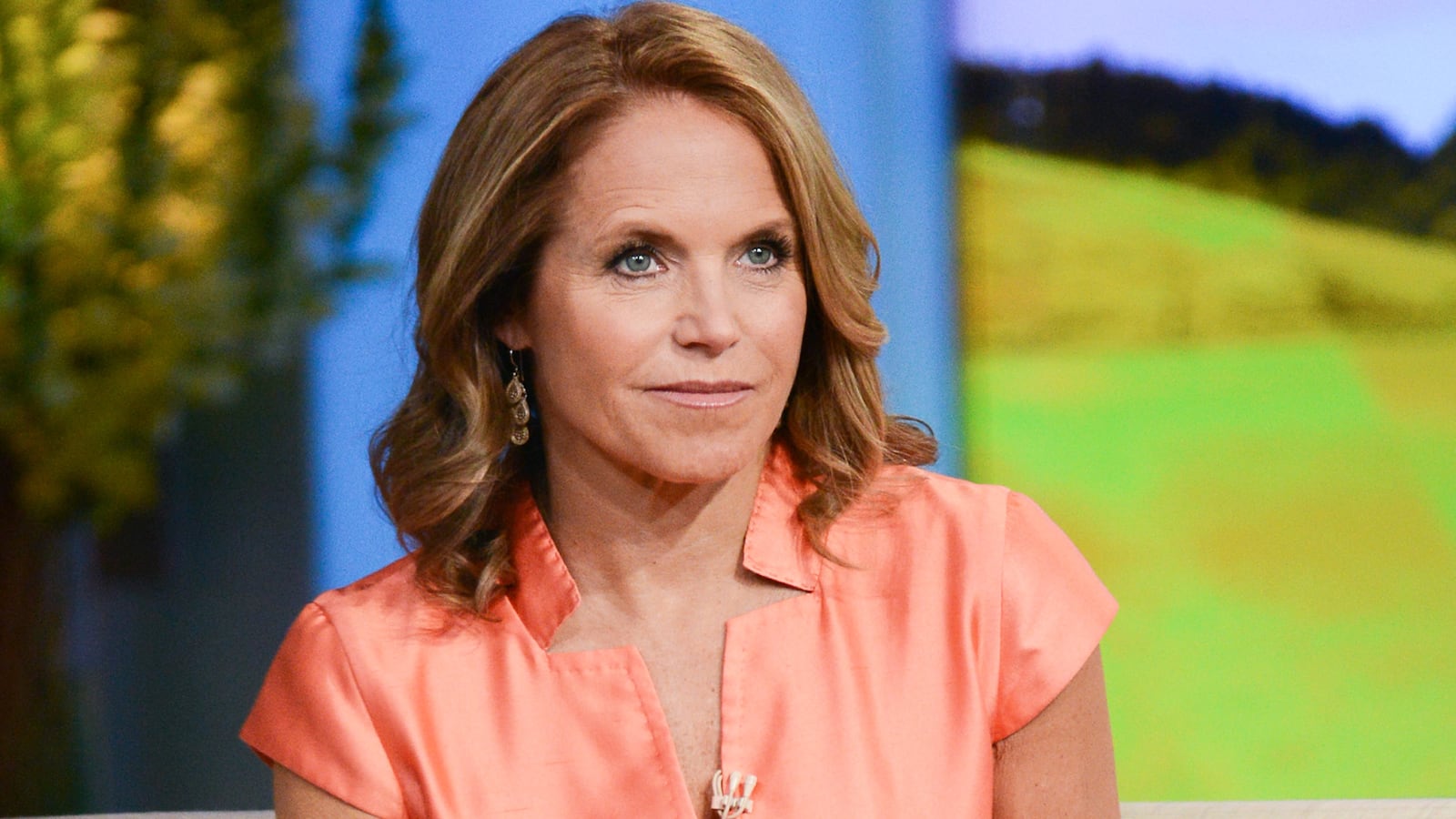Can you trust Katie Couric?
For a woman who has hosted news programs on three major television networks, received multiple awards for her reporting, and earned the title “America’s Sweetheart” back in her Today show glory, merely raising the question could be hugely damaging to her career—even more so now as she prepares to take on a high-profile role as the new global anchor of Yahoo News.

But Couric’s credibility now appears to be on the line after her syndicated talk show Katie aired a questionable segment that raised concerns about the safety of the HPV vaccine Gardasil—a debate that has long been settled in the medical community.
From the start of Couric’s show on Wednesday, which was teased with a trailer trumpeting the words “controversy” and “dangerous,” something appeared to be off. “Is the HPV vaccine a life-saving cancer preventer…or a potentially deadly dose for girls?” the host asked dramatically. She then brought on two mothers to discuss their daughters’ alleged negative reactions to the vaccine. One claimed her daughter became severely sick; the other believes her daughter died due to taking the vaccine.
Couric, who trades on her approachability and likeability, duly respected the women’s losses, and their stories were truly heart-rending. But in the eyes of many critics, the episode threw far too much weight on emotions and not enough on facts.
To Couric’s credit, two medical experts appeared on the program, HPV expert Diane M. Harper and contributor Dr. Mallika Marshall. Marshall sat down with Couric outlining the facts of the vaccine; Harper pointed out that each of the mother’s cases was highly unusual, but was ultimately sidelined and on the defensive. (Harper never even made the stage, speaking from the audience instead.)
A representative for Katie declined to comment on the article, but said that Couric will be addressing the backlash during her "Follow Up Friday" segment in Friday's show.
Here’s a bit of scientific perspective: According to a July report (PDF) from the Centers for Disease Control and Prevention, the national public-health institute, three studies have explored the safety of HPV4, aka Gardasil, in the United States; no serious safety concerned has been identified. Between June 2006 through March 2013, roughly 56 million doses of the vaccine were distributed in the U.S. In terms of adverse side effects, 21,194 cases were reported; 92.1 percent were described as non-serious. CDC data also show that 84 percent of unvaccinated girls had a health-care encounter when another vaccine was administered.
On a July 25 call regarding HPV vaccination coverage and vaccine safety, Dr. Tom Frieden, president of the American Academy of Pediatrics, said “HPV vaccine is safe, more than 57 million doses without identifying a problem. And it’s effective at reducing cancer.” In response to a question asking if the number of adverse events reported following the vaccine represent a confirmed link to the vaccine, Dr. Anne Schuchat responded, “There is no ability to link cause and effect with this system … With this extensive experience that we have with the 56 or 57 million doses of HPV vaccine in this country, and even more in other countries, we don’t have safety concerns about the vaccine. The VAERS system looks for patterns and then we follow up with something called a vaccine safety data link here in this country. And so far we have very reassuring news.”
What now? If anything, the incident has shown that the media isn’t afraid to take swipes at Couric. In recent days she has been compared to autism vaccine truther Jenny McCarthy and accused of promoting “bogus science.” An article in Slate magazine described the segment as being “loaded with anecdotes.” Tweets using the hashtag #badjournalism have surfaced regarding Katie’s interviewing, asking “can she redeem herself?” and “Even if @katiecouric does do another #HPV vaccine show, but this time focused on the science, the damage is done. #badjournalism”





